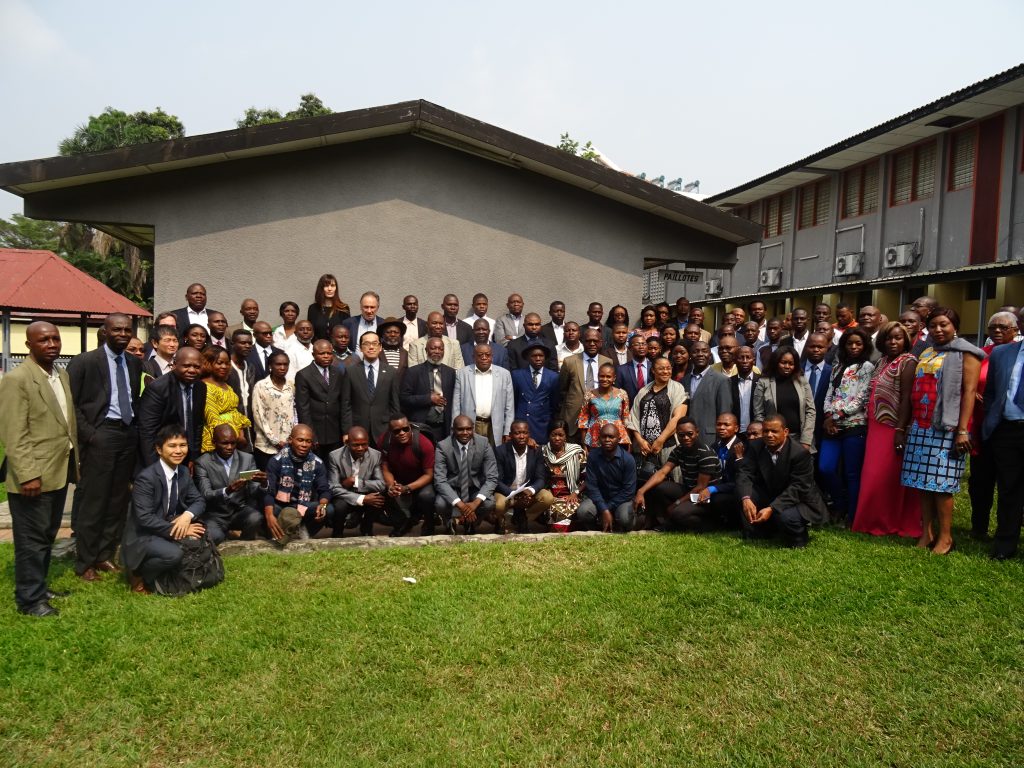Zombie fires are ravaging peatlands in France
Sep 30
Within the Congo Basin, the Cuvette Central Basin contains the world’s
largest tropical peatland, covering an area of 145,000 km2 and with
an estimated stock of 30 gigatons of carbon. Two thirds of the Cuvette Centrale
peatland are in the Democratic Republic of Congo, and includes the large marshy
areas of Lake Tumba, between the Ubangi-Congo Rivers, the Lokoro and Lotoy Basins,
and along the tributaries of the Ruki River. The carbon stored in this peatland
complex is equivalent to the total carbon stored above the ground by the 228
million hectares of forests in the entire Congo Basin. The
Congo Basin is also a biodiversity treasure, boasting over 10,000 species of
tropical plants of which 30 percent are unique to the region, home to rare species
like forest elephants, chimpanzees, bonobos, and lowland and mountain gorillas.
Given its vast areas covered by peatlands and most of which remains to be mapped, it is important that the Democratic Republic of Congo takes action and measures the extent of its contribution to global climate regulation. In July, the DRC dedicated Peatlands Unit, within the Ministry of Environment and Sustainable Development, organized the first ever national peatlands capacity building and outreach workshop in Kinshasa, with support from the Japanese Cooperation Agency (JICA) and technical guidance from United Nations Environment Programme.
The capacity building workshop brought together stakeholders who will be vital in helping DRC develop a transparent and participatory road map towards a national peatland strategy and priority peatland activities. The workshop, the first of its kind in the region, brought together 140 delegates to pursue an intersectoral approach to peatlands planning and management. Participants included local community’s and indigenous peoples’ representatives, technical and financial partners, delegates from universities and institutions dedicated to research, representatives of civil society organizations and networks that are members of the REDD+ Climate Working Group. This workshop also invited representatives from the Republic of Congo to carry forward the implementation of the Brazzaville Declaration on Peatlands.

Participants to the first ever capacity-building and outreach workshop on peatlands in the DRC, hosted by the Peatlands Unit within the Ministry of Environment and Sustainable Development
The workshop shared
some of the current knowledge on
peatlands location, extent, their importance and highlighted the threats they
face in DRC. Examples of peatlands management were presented and the importance
of mapping for peatlands monitoring and decision-making was emphasized. There
was an emphasis on the importance of keeping the peatlands healthy, wet and intact,
and ideas were shared on what would be needed to support this . Representatives
from the DRC Ministry of Environment and Sustainable Development shared their
intention to guide the development of a national roadmap toward developing a
peatlands policy.
UNEP supported
the conceptualization of the workshop, and together with other Global Peatlands
Initiative partners, delivered capacity building presentations, taking the
opportunity to reach out to the incoming government and stakeholders to share
information as well as to invite their collaboration with the Initiative.
This first national workshop is a necessary step in the follow up of the Brazzaville Declaration and the UNEA 4 Resolution on the Conservation and Sustainable Management of Peatlands. The development of a robust peatlands policy built through interdisciplinary collaboration and elaborated through an inclusive and participatory process will be a positive step for the health of the Cuvette Centrale peatlands, for people and for the planet.
For further information please contact Dianna Kopansky: Dianna.Kopansky@un.org
Read the Brazzaville Declaration in French here: Declaration de Brazzaville
Sep 30
Sep 30
Aug 31